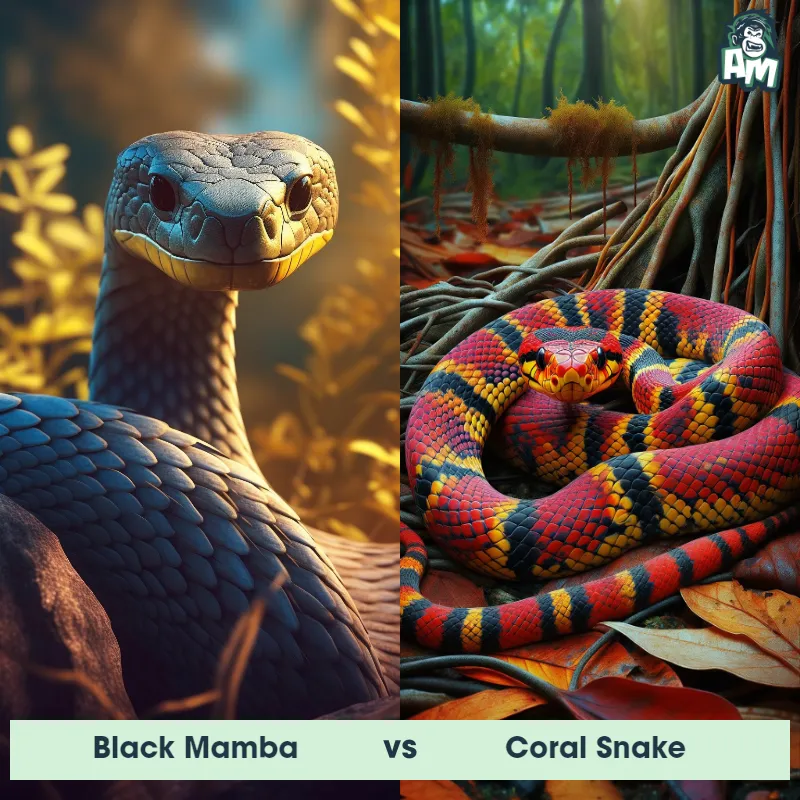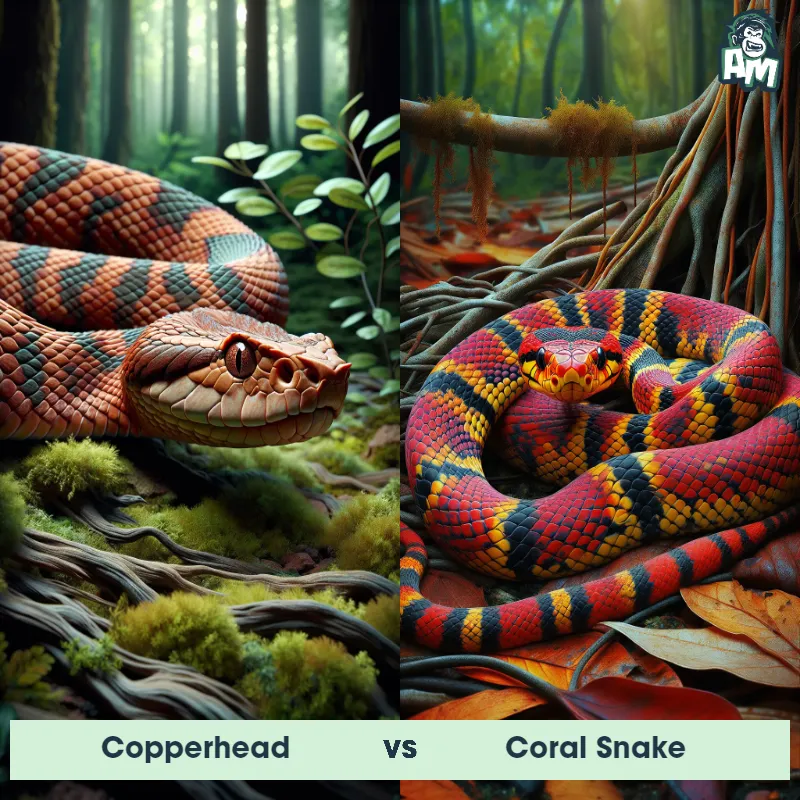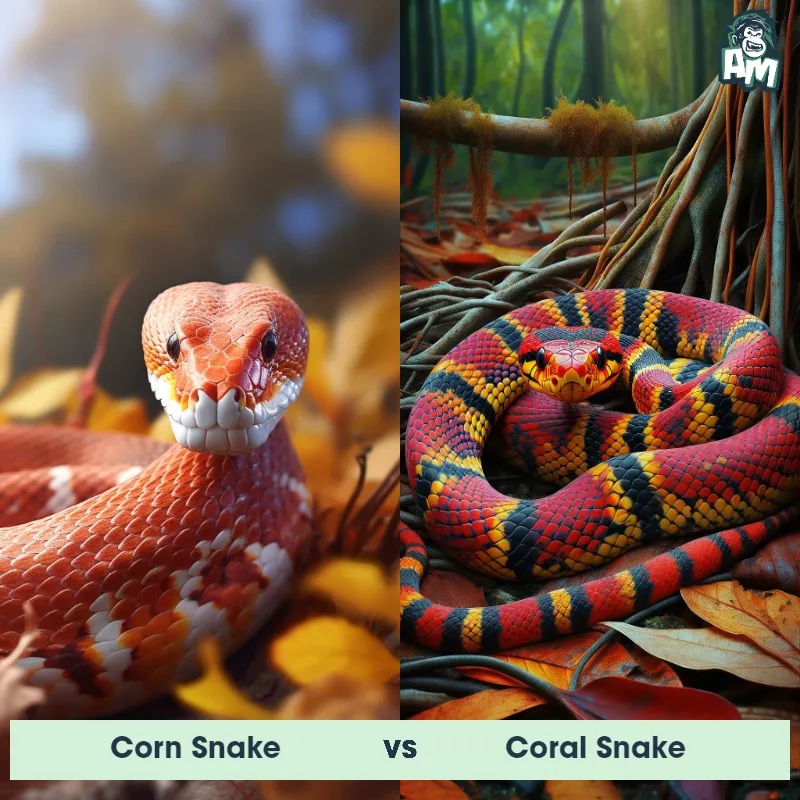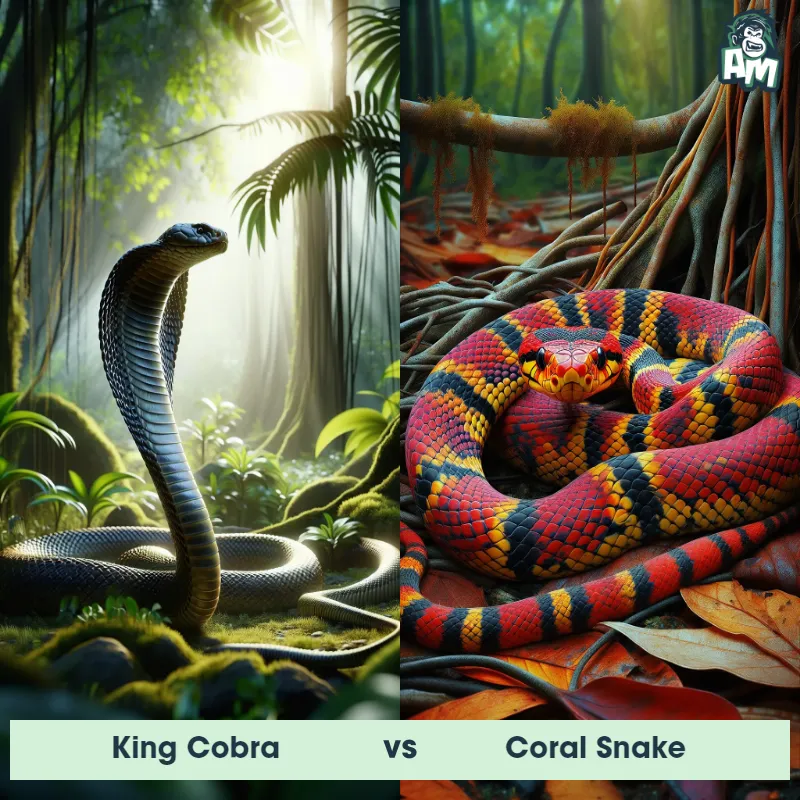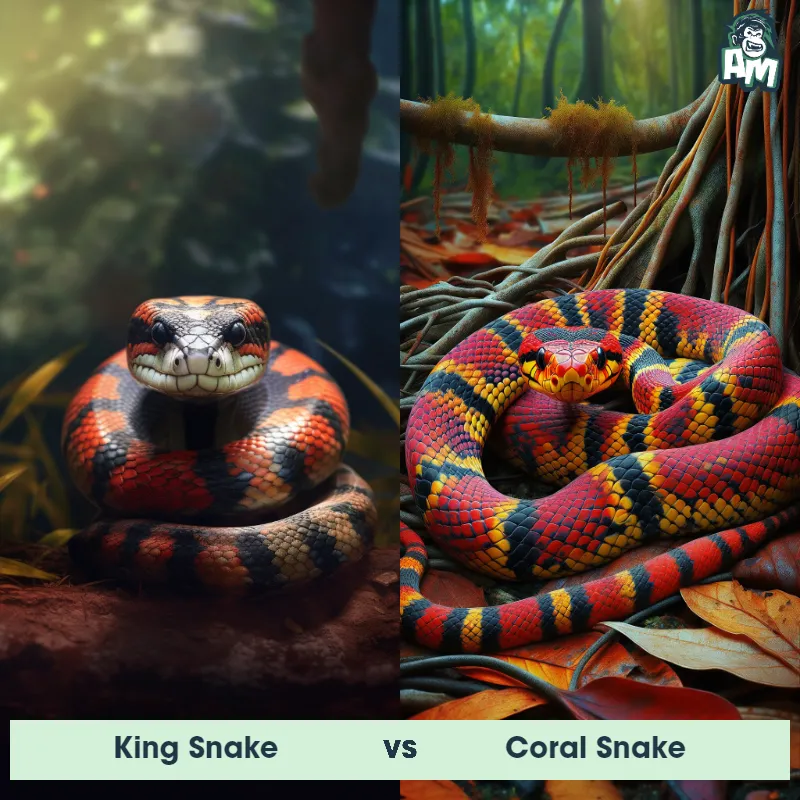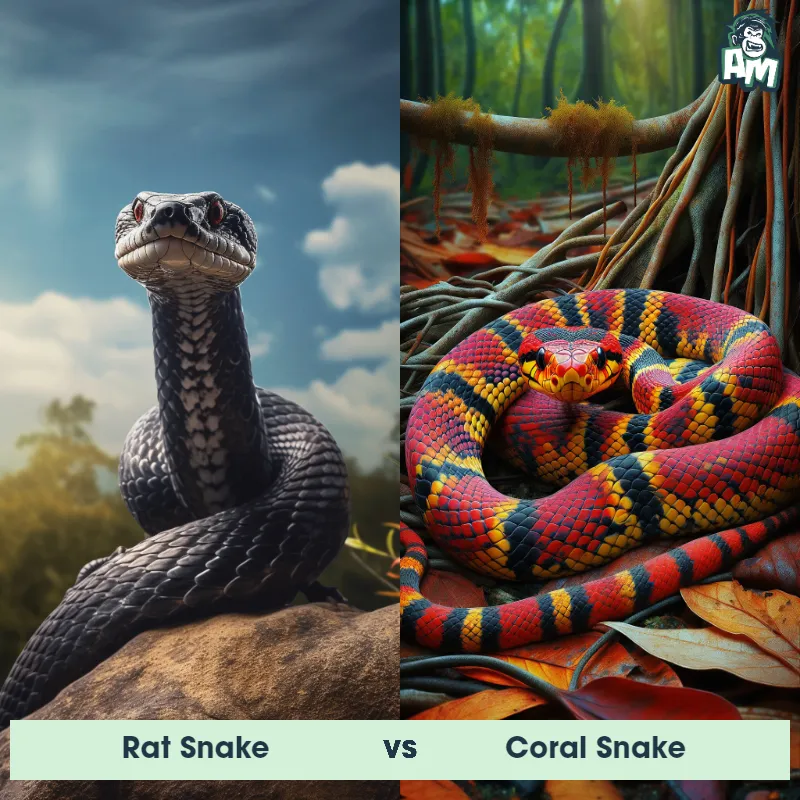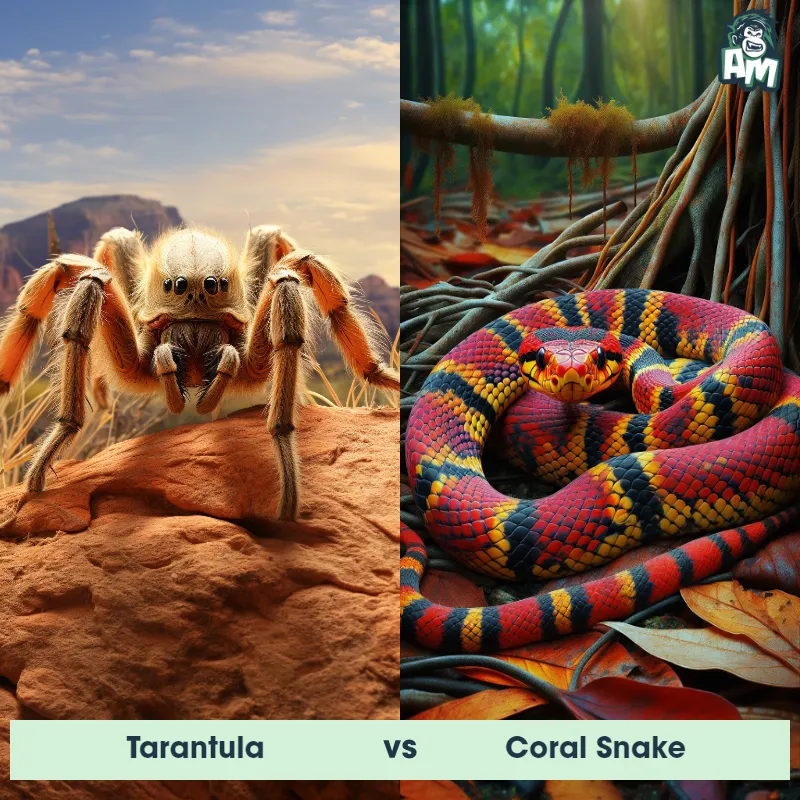The Coral Snake
The Coral Snake, also known as Micrurus fulvius, is a venomous snake found primarily in the southeastern United States. It has a distinct color pattern that sets it apart from other snakes - its body features bold bands of red, yellow, and black, arranged in a specific order. The Coral Snake has a relatively small size, typically measuring around two to three feet in length. It has smooth scales, a slender body, and a rounded head. Despite its vibrant appearance, the Coral Snake is reclusive and secretive, often hiding in leaf litter or burrows.
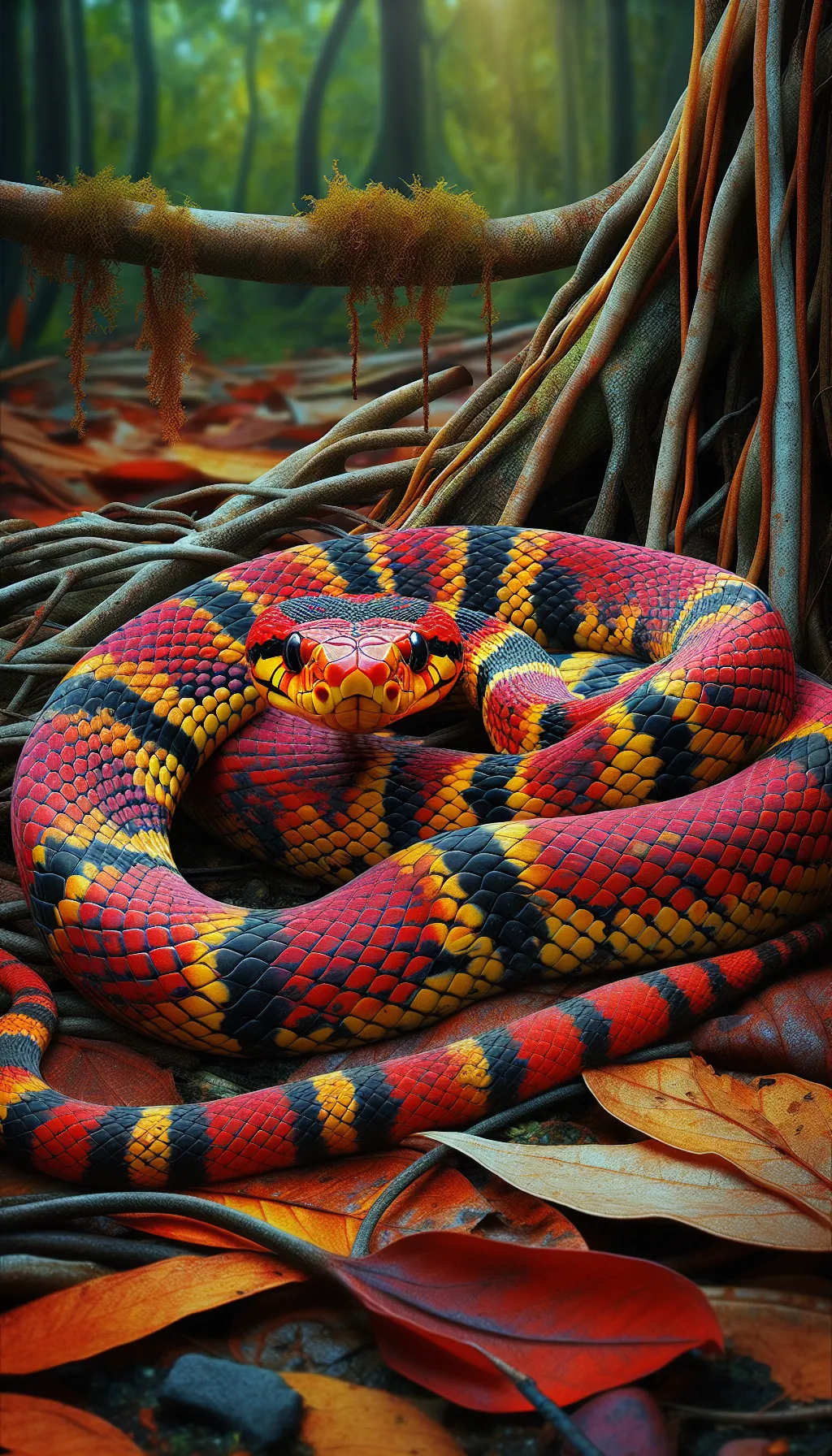
| Coral Snake | |
|---|---|
| Size | 2 to 4 feet long (0.6 to 1.2 meters) |
| Weight | Not specified |
| Speed | 1mph (1.6km/h) |
| Key Strength | Not specified |
| Biggest Weakness | Not specified |
| Scientific Name | Micrurus fulvius |
| Family | Elapidae |
| Habitat | Leaf litter, underground burrows |
| Geography | North America |
| Diet | Small reptiles, snakes, and other snakes' eggs |
| Lifespan | 6 years - 8 years |

The Coral Snake
The Coral Snake, also known as Micrurus fulvius, is a venomous snake found primarily in the southeastern United States. It has a distinct color pattern that sets it apart from other snakes - its body features bold bands of red, yellow, and black, arranged in a specific order. The Coral Snake has a relatively small size, typically measuring around two to three feet in length. It has smooth scales, a slender body, and a rounded head. Despite its vibrant appearance, the Coral Snake is reclusive and secretive, often hiding in leaf litter or burrows.
Fun Fact: One fun fact about the Coral Snake is that it is part of the elapid family, which includes other venomous snakes like cobras and mambas.
| Coral Snake | |
|---|---|
| Size | 2 to 4 feet long (0.6 to 1.2 meters) |
| Weight | Not specified |
| Speed | 1mph (1.6km/h) |
| Key Strength | Not specified |
| Biggest Weakness | Not specified |
| Scientific Name | Micrurus fulvius |
| Family | Elapidae |
| Habitat | Leaf litter, underground burrows |
| Geography | North America |
| Diet | Small reptiles, snakes, and other snakes' eggs |
| Lifespan | 6 years - 8 years |
Coral Snake Matchups
We use AI to simulate matchups between the Coral Snake and other animals. Our simulation considers size, strength, and natural predatory behaviors to determine the most likely outcome.
Coral Snake: Diet, Predators, Aggression, and Defensive Behaviors
What do Coral Snakes eat?
Coral Snakes primarily eat other smaller snakes, lizards, and amphibians. Their diet consists mainly of other reptiles and occasionally small mammals.
Do Coral Snakes have any predators?
Yes, Coral Snakes do have predators such as birds of prey, larger snakes, and mammals like foxes and raccoons. Despite their venomous nature, they are not immune to being hunted by other animals.
Are Coral Snakes aggressive?
Coral Snakes are not typically aggressive towards humans and will try to avoid confrontation if possible. They are known to be shy and reclusive snakes that would rather escape than engage in a fight.
Do Coral Snakes fight?
Coral Snakes will only fight when they feel threatened or cornered and have no other option. Their first instinct is to avoid conflict, but they will defend themselves if necessary.
How do Coral Snakes defend themselves?
Coral Snakes have a potent neurotoxin in their venom that they use to immobilize their prey or defend themselves against predators. When threatened, they may bite and inject venom into the threat as a way to defend themselves.
What is Coral Snakes' biggest weakness in a fight?
Despite their venomous bite, Coral Snakes are relatively small and have fragile bodies, making them vulnerable to larger predators. Their size and lack of physical strength can be a weakness when facing off against more substantial threats in a fight.
Fun Fact: Unlike many other venomous snakes, the Coral Snake's venom is primarily neurotoxic, affecting the victim's nervous system and causing paralysis, rather than being hemotoxic and affecting blood cells.
Fun Fact: The Coral Snake is known for its unique method of defense - when threatened, it may arch its body, exposing its vividly colored underside, and perform a distinctive flipping motion, as if attempting to confuse and deter potential predators.



